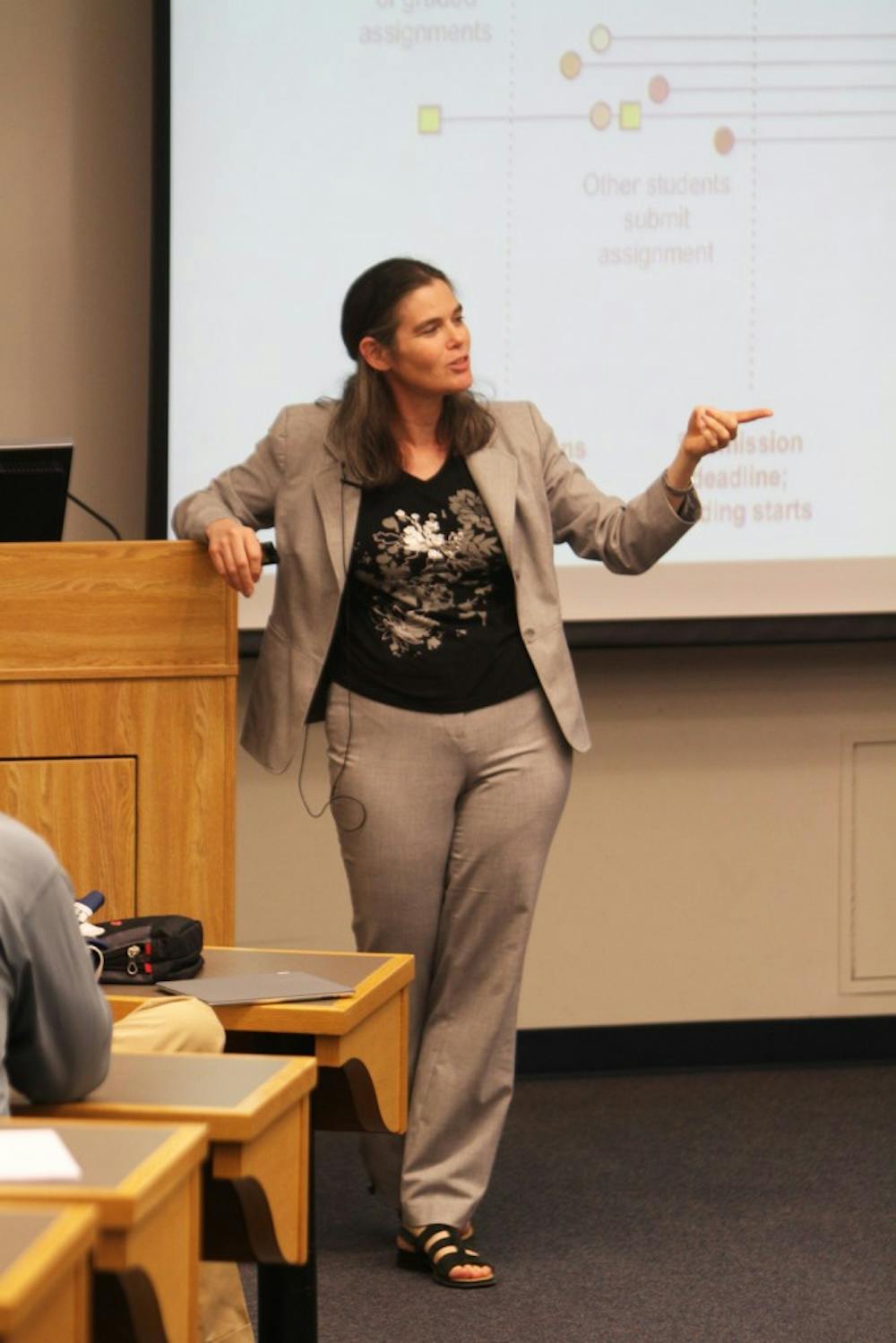Online education programs can not only provide opportunities for the underprivileged but may also be powerful resource for students around the world, said Daphne Koller, professor of computer science at Stanford University and co-founder and co-CEO of Coursera.
Founded in 2011, Coursera is a California-based online education company that provides the global community with free access to video lectures, quizzes and message boards from notable institutions. Currently, Coursera has more than 1.5 million registered users and a selection of 198 classes. Coursera partners with 33 institutions, including several peer universities such as University of Pennsylvania and Princeton University. As part of the lecture series titled “Online Revolution: Education for Everyone,” Koller addressed a crowded audience about the potential benefits of online education.
“This sets the stage for a new wave of innovation,” she said. “By giving people access to education any time that they might want to learn something about astronomy, philosophy or poetry, they would be able to take advantage of [this resource].”
Duke recently initiated a partnership with Coursera and launched its first online course Sept. 24. The course, entitled Bioelectricity: a Quantitative Approach, will be taught by Roger Barr, Anderson-Rupp professor of biomedical engineering. The course already has over 11,000 students enrolled.
This experimental approach to education provides for an improved classroom experience for on-campus students—a notion often overlooked by those attending prestigious institutions, Koller added.
She cited many benefits of incorporating Coursera into a lecture setting, including the individual tailoring of the flow and pace of the course, the opportunity to create a less threatening environment for students and the immediate feedback and mastery of challenging material.
Provost Peter Lange added that the uptake of Coursera into the University setting enriches the innovative teaching already undertaken by many faculty members.
“We are learning more about the strengths and limitations of incorporating online content into courses and how social networking tools might enrich the classroom experience,” Lange said.
The growing popularity of the platform attests to the high demand of education, Koller said, noting that some of Coursera’s courses have more than 100,000 students. She added that at any given time during the day, there are approximately 7,000 students logged into the online platform.
“Big breakthroughs happen when what is suddenly possible meets what is desperately necessary,” she said, quoting Thomas Friedman’s New York Times column published May 15.
Koller emphasized the discussion-based aspect of Coursera. The platform has a forum to enable dialogue between peers, professors and community teaching assistants in order to foster support—similar to discussion sections or office hours in a college setting.
“Counterintuitively, having a larger class is beneficial,” Koller said. “If you post a question—even if it’s three in the morning—one of those 7,000 people logged into the platform... may be looking at the same forum.”
She added that the collaborative environment of Coursera allows for a mere 22 minute median response time to a post.
Ashley Young, a doctoral student in history, noted that Duke is using more technology in the classroom setting, adding that the methods Coursera offers will reinforce knowledge retention and the acquisition of information for University students.
“[Coursera] will give students the opportunity to reciprocate and continue the discussion with their professor,” she said. “An online component [to classes] can prove to be more engaging than standard lectures.”
The platform also provides an opportunity to scout raw talent in places bereft of the resources needed for conventional academic cultivation.
“You don’t know where the next Albert Einstein or the next Steve Jobs is currently living and maybe they’re living in a remote village in Africa,” Koller added. “If you gave them access to this kind of education, they might be able to come up with the next big idea and make the world a better place.”
Get The Chronicle straight to your inbox
Signup for our weekly newsletter. Cancel at any time.

